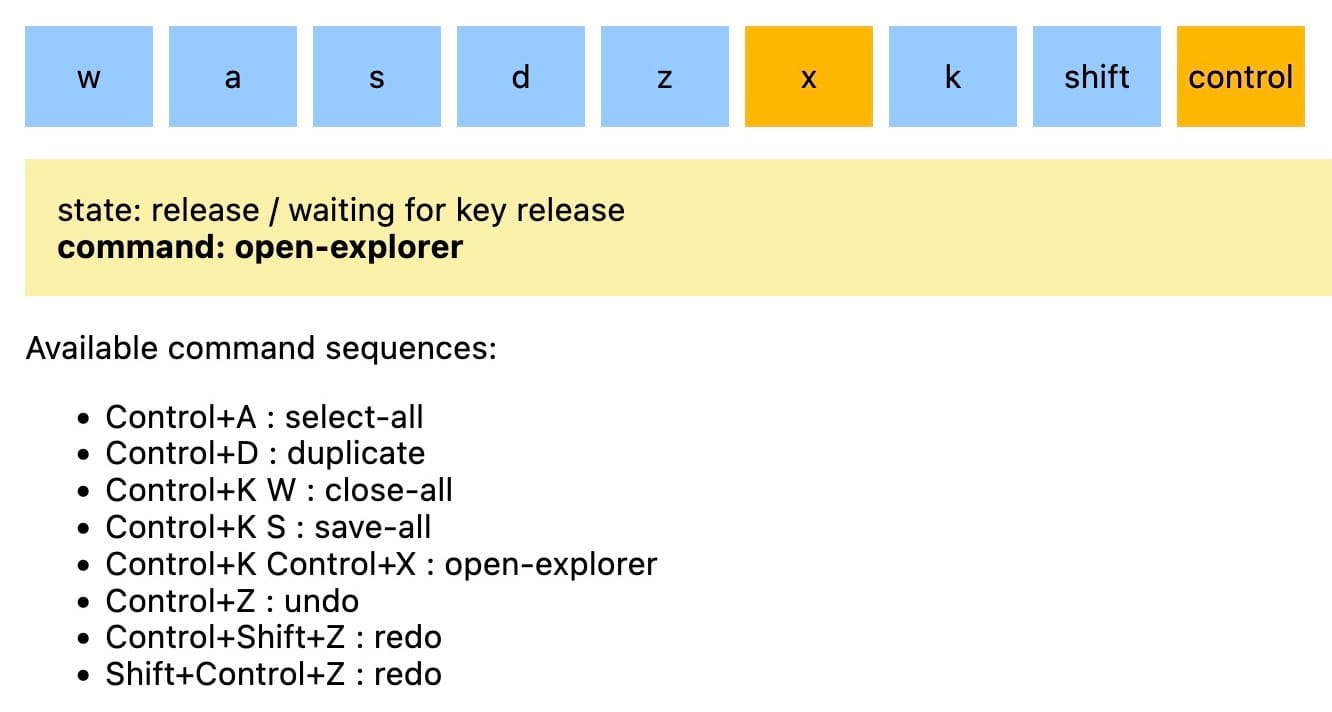



[!NOTE]
This is one of 199 standalone projects, maintained as part
of the @thi.ng/umbrella monorepo
and anti-framework.
🚀 Please help me to work full-time on these projects by sponsoring me on
GitHub. Thank you! ❤️
Update 12/2022: This package is considered completed and no longer being
updated with new features.
About
Transducer-based Finite State Machine transformer. This is a support package for @thi.ng/transducers.
This package provides a single function, a general purpose Finite State
Machine transducer,
which acts as useful & lightweight mechanism to provide
context-sensitive processing capabilities as part of a transducer
transformation pipeline.
Status
COMPLETED - no further development planned
Search or submit any issues for this package
This package might be merged with (or deprecated by) the newer
@thi.ng/parse
package.
Related packages
- @thi.ng/sax - Transducer-based, SAX-like, non-validating, speedy & tiny XML parser
Installation
yarn add @thi.ng/transducers-fsm
ESM import:
import * as fsm from "@thi.ng/transducers-fsm";
Browser ESM import:
<script type="module" src="https://esm.run/@thi.ng/transducers-fsm"></script>
JSDelivr documentation
For Node.js REPL:
const fsm = await import("@thi.ng/transducers-fsm");
Package sizes (brotli'd, pre-treeshake): ESM: 213 bytes
Dependencies
Note: @thi.ng/api is in most cases a type-only import (not used at runtime)
Usage examples
One project in this repo's
/examples
directory is using this package:
| Screenshot | Description | Live demo | Source |
|---|
 | rstream & transducer-based FSM for converting key event sequences into high-level commands | Demo | Source |
Usage examples
For a real world example, the
@thi.ng/sax
package provides a SAX-like XML parser transducer, built around the FSM
provided here.
3-state FSM
The following example defines a simple FSM with 3 states:
The FSM always starts in the skip state.
The FSM alternates between skipping or consuming (passing through) 5
inputs as long as each input is < 20. Once an input is >= 20, the FSM
switches into the done state, which has been declared as a terminal
state and once entered will cause processing to terminate (also see API
description further below).
import { fsm } from '@thi.ng/transducers-fsm'
import * as tx from '@thi.ng/transducers'
import { isOdd } from '@thi.ng/checks'
const testFSM = fsm({
init: () => ({ state: "skip", count: 0 }),
terminate: "done",
states: {
skip: (state, x) => {
if (x < 20) {
if (++state.count > 5) {
state.state = "take";
state.count = 1;
return [x];
}
} else {
state.state = "done";
}
},
take: (state, x) => {
if (x < 20) {
if (++state.count > 5) {
state.state = "skip";
state.count = 1;
} else {
return [x];
}
} else {
state.state = "done";
}
},
done: () => { },
},
});
[...tx.iterator(testFSM, tx.range(100))]
[...tx.iterator(tx.comp(tx.takeNth(2), testFSM), tx.range(100))]
[
...tx.iterator(
tx.comp(
tx.mapcat((x) => x.split(/[,\s]+/g)),
tx.map((x) => parseInt(x)),
testFSM,
tx.filter(isOdd)
),
["9,8,7,6", "14 1 0 17 15 16", "19,23,12,42,4"]
)
]
API
Generated API docs
fsm transducer
fsm<T extends FSMState, A, B>(opts: FSMOpts<T, A, B[]>): Transducer<A, B>
Finite State Machine transducer. Takes an FSM configuration object and
returns a transducer, which processes inputs using the provided state
handler functions, which in turn can produce any number of outputs per
consumed input.
Before processing the first input, the FSM state is initialized by
calling the user provided init() function, which MUST return a state
object with at least a state key, whose value is used for dynamic
(i.e. stateful) dispatch during input processing. This state object is
passed with each input value to the current state handler, which is
expected to mutate this object, e.g. to cause state changes based on
given inputs.
If a state handler needs to "emit" results for downstream processing, it
can return an array of values. Any such values are passed on
(individually, not as array) to the next reducer in the chain. If a
state handler returns null or undefined, further downstream
processing of the current input is skipped.
Regardless of return value, if a state handler has caused a state change
to the configured terminate state, processing is terminated (by calling
ensureReduced()) and no further inputs will be consumed.
Authors
If this project contributes to an academic publication, please cite it as:
@misc{thing-transducers-fsm,
title = "@thi.ng/transducers-fsm",
author = "Karsten Schmidt",
note = "https://thi.ng/transducers-fsm",
year = 2018
}
License
© 2018 - 2024 Karsten Schmidt // Apache License 2.0








